Parent & Family Association







Facilities: Wellness Center Natatorium
Fencing Center
Outdoor Fitness Complex
Disc Golf Course Headwaters Field
Programs:

Student Wellness
Intramural Sports
Club Sports
Employee Wellness
• Free with UIW ID*

• Must have ID to enter
• Exercise Classes
• Weight Room
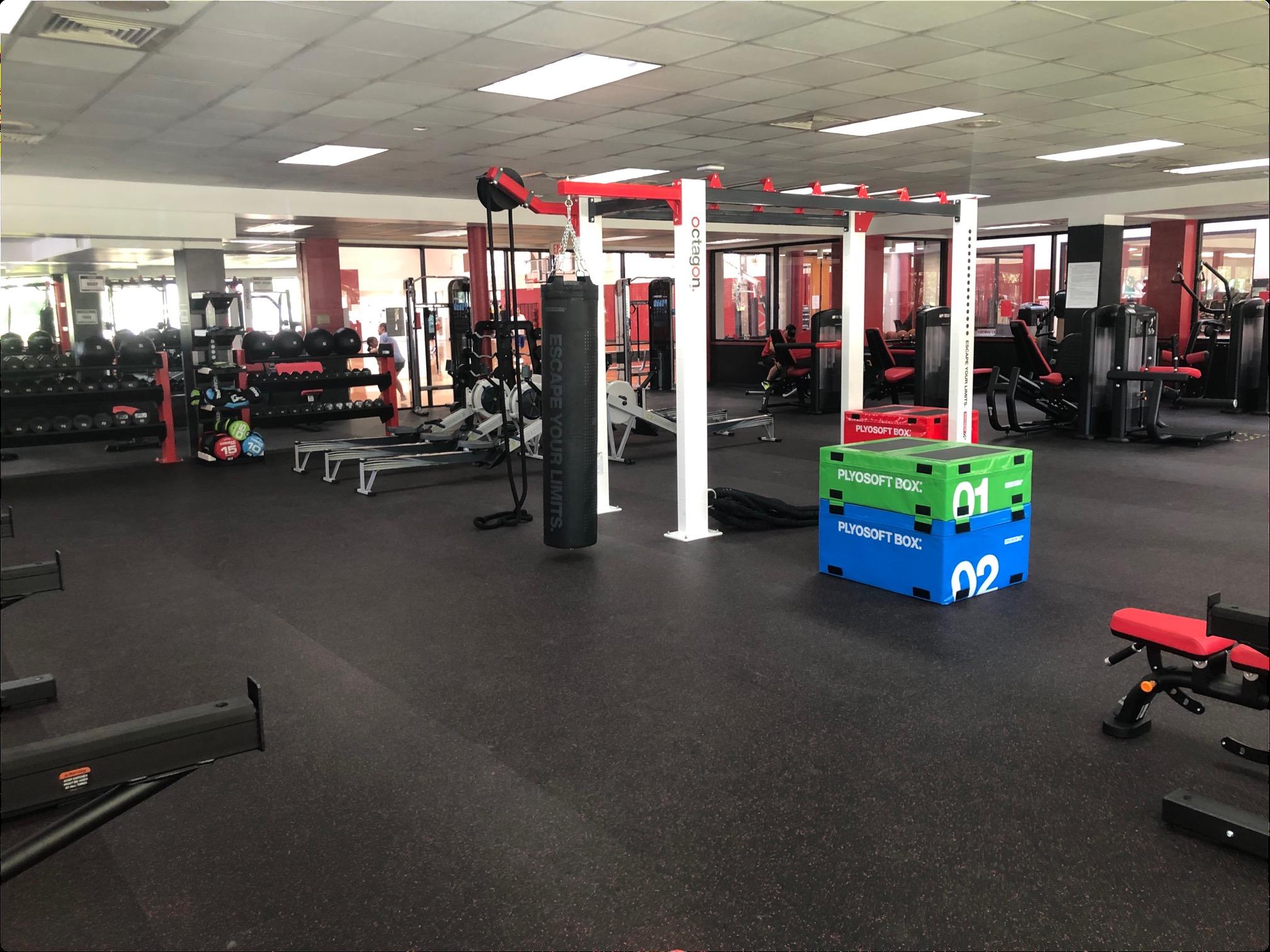
• Cycling Room
• Cardio Room

• Basketball Court

• 3 Racquetball Courts



• Home to Club Sports
• Home to Intramurals
• Lockerrooms
• Free with UIW ID*

• Must have ID to enter
• Water Aerobic Exercise Classes
• Lap Swimming
• Heated pool
• Sun Deck
• Locker rooms


• Free with UIW ID*

• Open to current students, faculty and staff
• Compete against other UIW Students
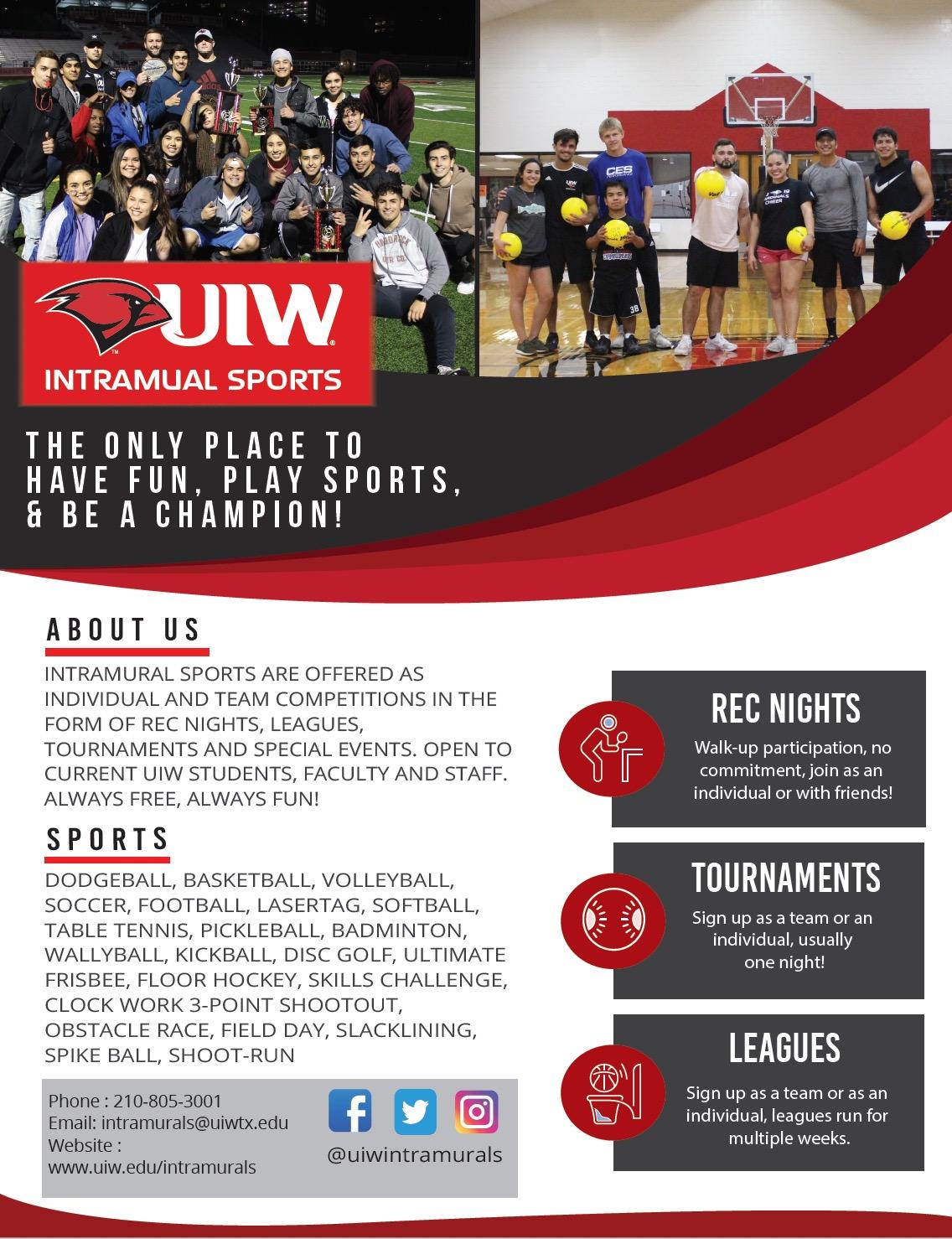
• This semester:
• Tennis Rec Nights
• Weekly volleyball tournaments
• Basketball (3v3 & 5v5)
• 3-PT/Dunk Contest
• Human Foosball
• Dodgeball Tournament
• Softball Tournament
• Kickball Tournament
• Archery Tag Tournament
• Disc Golf Tournament

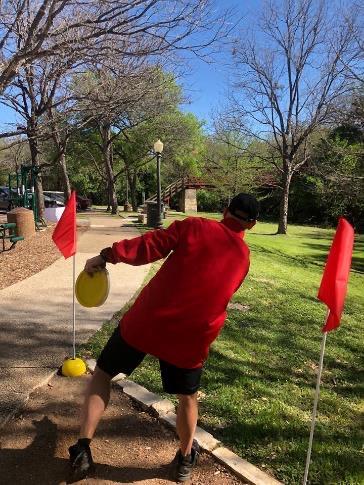



• Now hiring:
• Student Technician
• No previous job experience required; previous customer service experience preferred
• This position requires the ability to lift to 50 pounds of equipment.
• Lifeguard
• Must be able to pass the swim test requirement, previous lifeguard experience preferred
• Sports Operation Associate

• No previous job experience required; previous customer service experience preferred
• Aerobics Instructor
• Certification required
• Will hire again in March:
• Front Desk Associate
• No previous job experience required; previous customer service experience preferred






– People who seek therapy are weak
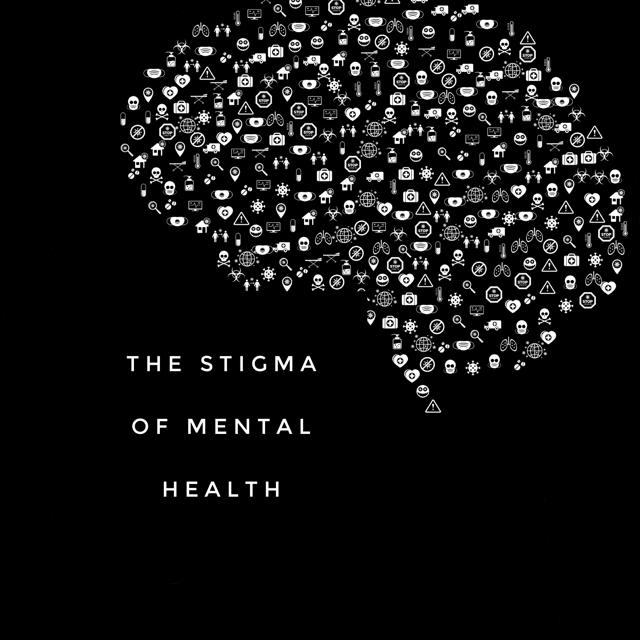
• Reaching out shows resourcefulness
–
Therapists make clients feel better right away
• Healing takes time
– Therapy is just talking to someone
• Collaborative problem-solving approach
–
Therapists blame everything on upbringing
• Good therapists bring an objective view
According to the World Health Organization (2012), mental health is “related to the promotion of well-being, the prevention of mental disorders, and the treatment and rehabilitation of people affected by mental disorders.”

Mental Disorders
Treatment of:
Social-Emotional Problems
Substance Abuse
Trauma/Abuse/Neglect
(Melonson, 2015)
Stress Management/Anxiety

Depressive Symptoms/Loss of energy or concentration
Feeling Overwhelmed Relationships/Family Issues
Career Concerns
Learning Issues
Eating Disorders
Alcohol/Substance Use Issues/Addiction
Sleep Issues
Treatment and Screening for Disorders
Provide Resources
• Assess
• Crisis Intervention
• Counseling
• Goal Setting
• Skills Building
– Emotion Regulation

– Effective Communication Strategies

– Distress Tolerance
– Mindfulness/Relaxation
– Cognitive Restructuring
• Empowerment

Encouragement Persistence
Growth
Kindness

• Emotional Well-being
• Perceived life satisfaction, happiness, cheerfulness, peacefulness
• Psychological Well-being

• Self-acceptance, personal growth including openness to new experiences, optimism, hopefulness, purpose in life, control of one’s environment, spirituality, self-direction, and positive relationships
• Social Well-being
• Social acceptance, beliefs in the potential of people and society as a whole, personal self-worth and usefulness to society, sense of community (CDC, 2013)

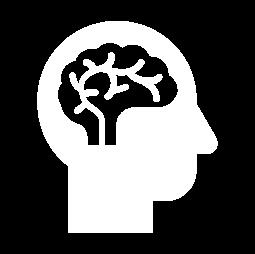

SLEEP EXERCISE EATING WELL RELAXATION CONNECTION





• Loss of pleasure/enjoyment at work or in personal life
• Depression
• Concentration problems
• Anxiety
• Increased mistakes or errors
• Loss of objectivity
• Isolation
• Emotional reactivity
• Relationship issues
• Insomnia or disturbed sleep
• Fatigue

1. Self Awareness
2. Mindfulness

3. Self-Care
4. Positive Relationships
5. Purpose


What is Mindfulness?
• Intentionally paying attention to the present moment with kindness
3 Qualities of Mindfulness

• Attitude: Open Curiosity
• Attention: Present Focused
• Intention: Purposeful Choice
Deep Breathing Techniques
• One to One Breath
• Inhale for 4 seconds
• Pause for 4 seconds
• Exhale out for 4 seconds
• Counting your breaths
• Breathe in 1 and out 1 until you get to 10
• Extend your exhalation
Meaningful self-care means making intentional changes in unhealthy thought and behavior patterns
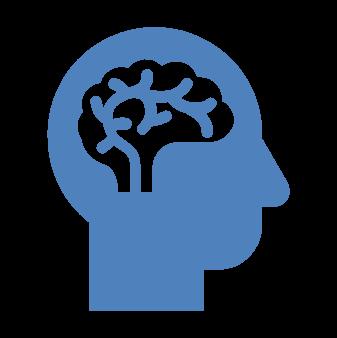


Taking time to recharge gives you more energy to do more for yourself and those you care about
Prioritizing self-care can take a small amount of time out of your busy day but it allows you to be more present during the day

Create individualized self-care strategies

Meet basic needs (sleep, hydration, nutrition, and exercise)
Finding a hobby
Developing self compassion
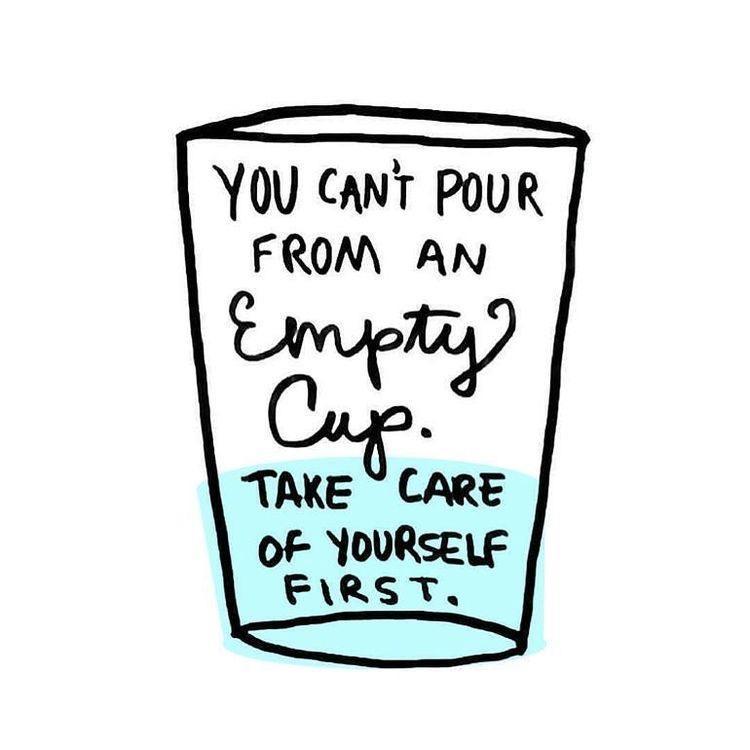
Finding balance
Scheduling “me” time
Reaching out for support
Location & Hours
• Phone Number: (210) 832-5656
• Website: https://my.uiw.edu/counseling/ourservices/index.html

• Making an Appointment: Call for an appointment in-person, Zoom, or phone sessions (if you are currently in Texas)
• Hours: M-F 8:00 a.m. - 5:00 p.m.
• Location: Broadway Campus, Administration Building, Suite 438


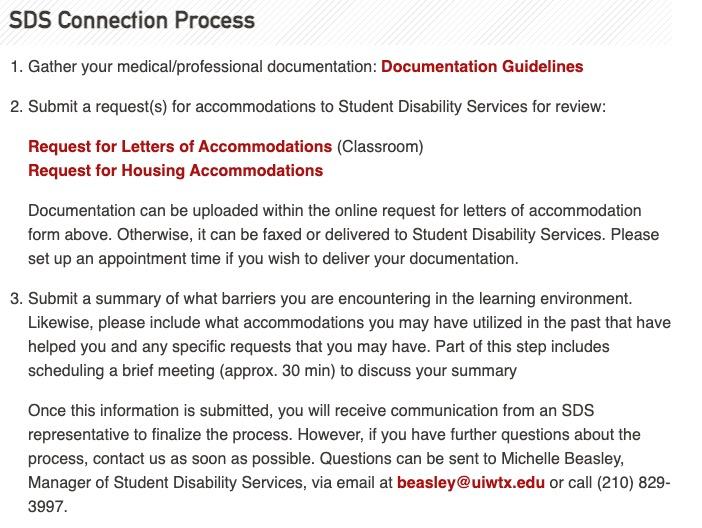





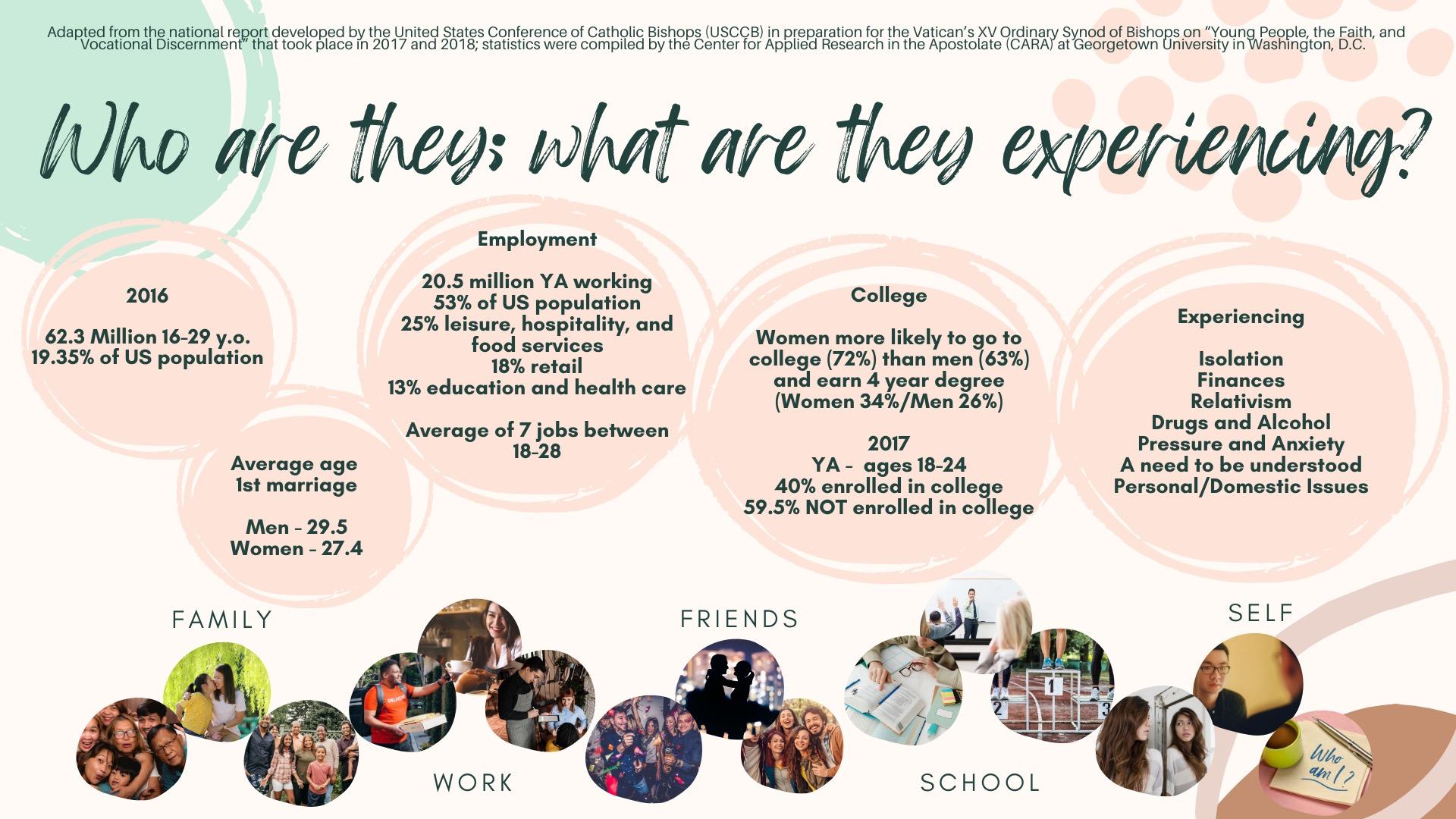
Too scary! Retreat!
Doubts not resolved! Drop out!
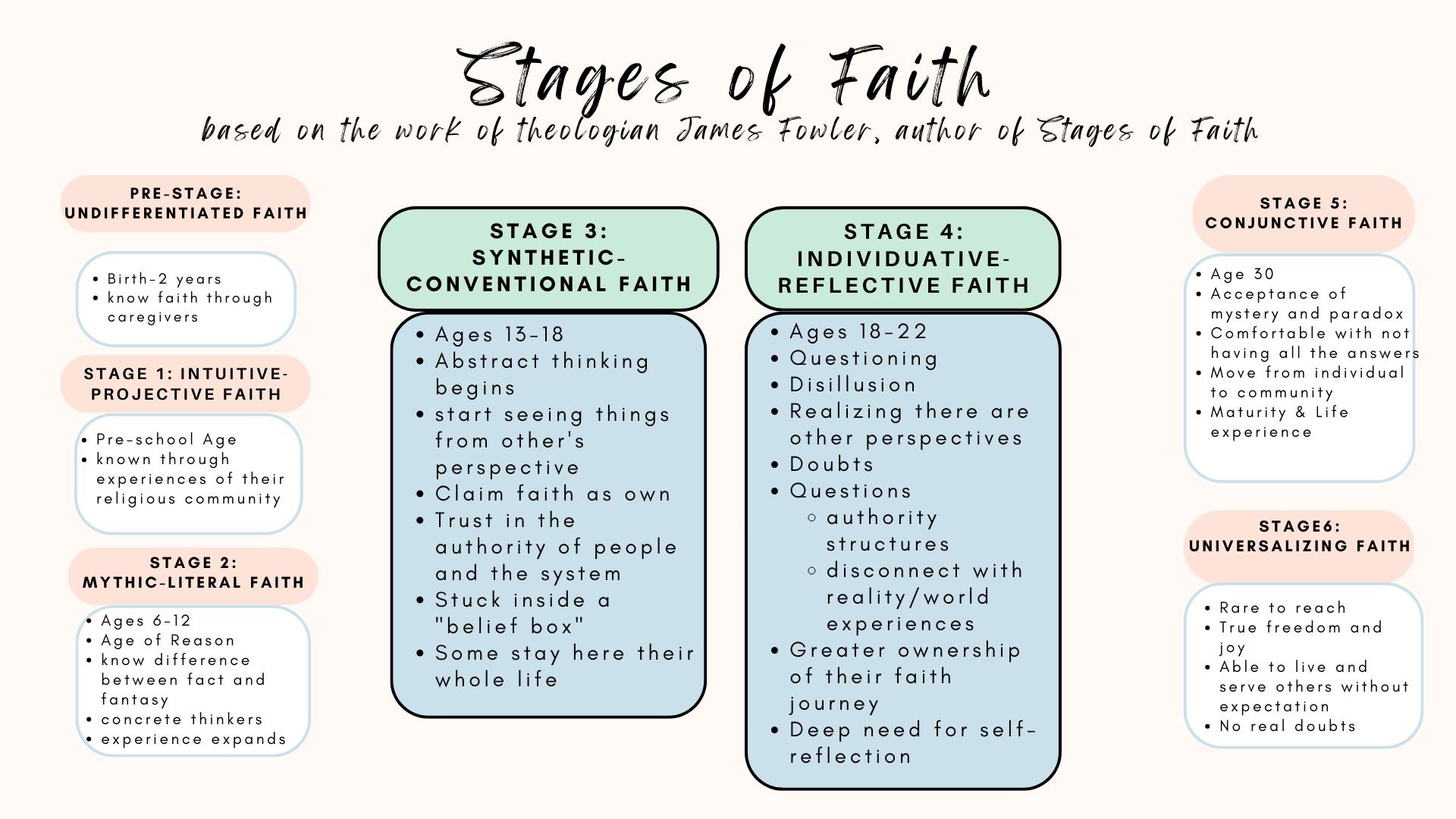

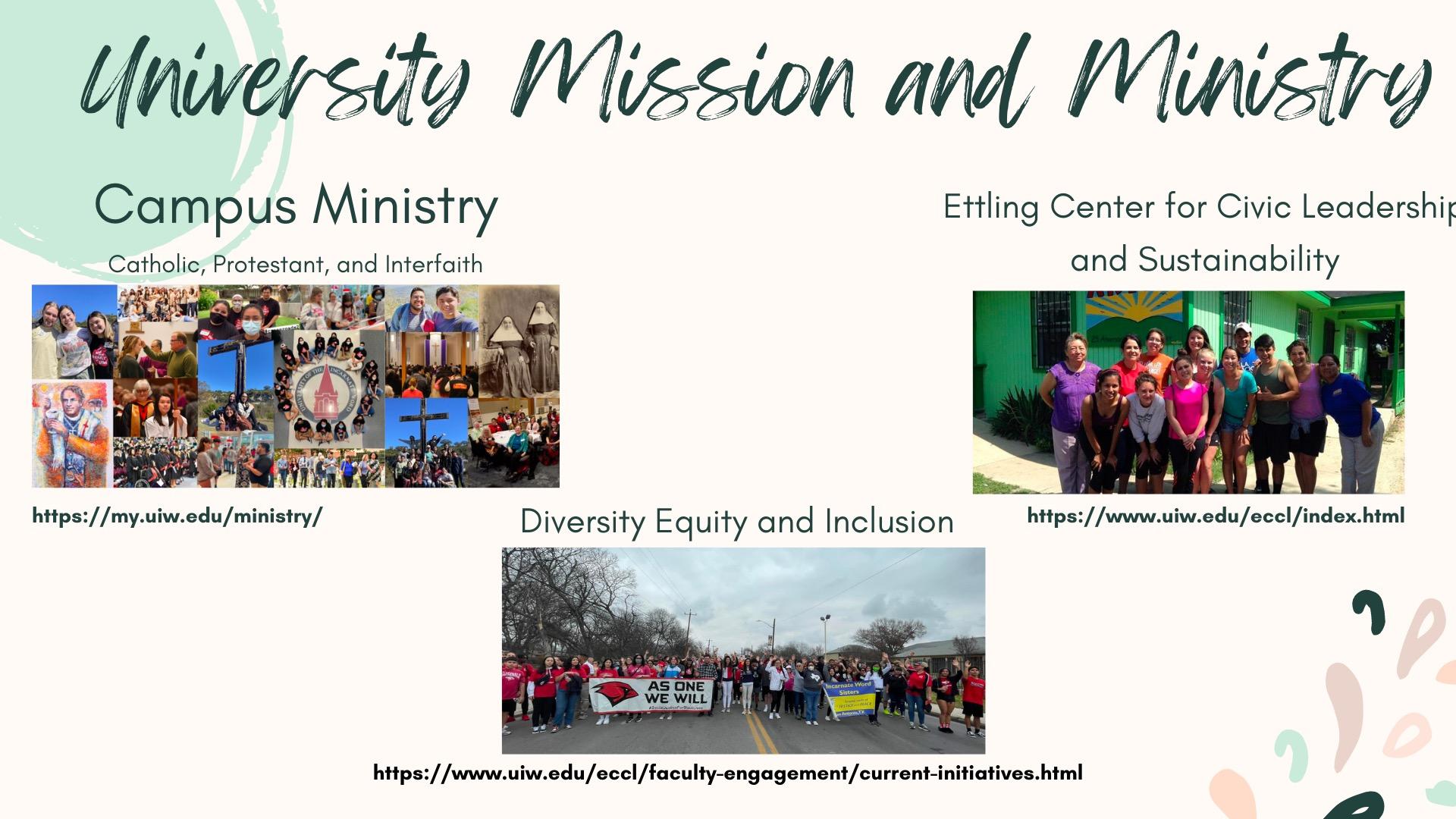



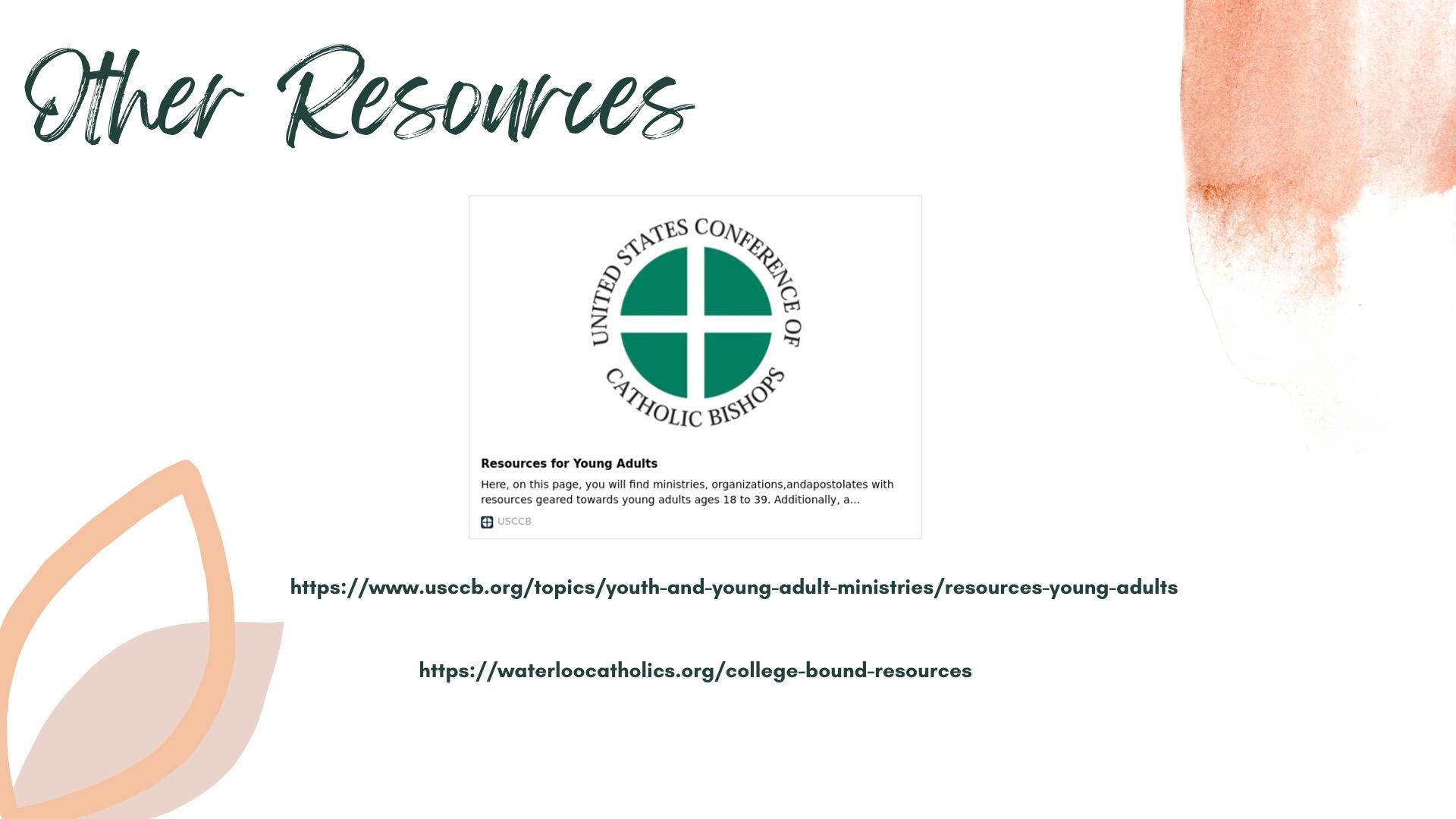





The University of the Incarnate Word is a Catholic institution that welcomes to its community persons of diverse backgrounds,
“Our Lord Jesus Christ, suffering in the persons of a multitude of the sick and infirm of every kind, seeks relief at your hands,” came to San Antonio in 1869 to minister to the sick and the poor. Their spirit of Christian service is perpetuated in the Uni sity of the Incarnate Word primarily through Judeo-Christian values, the Catholic Intellectual Tradition, and Catholic Social Teaching,
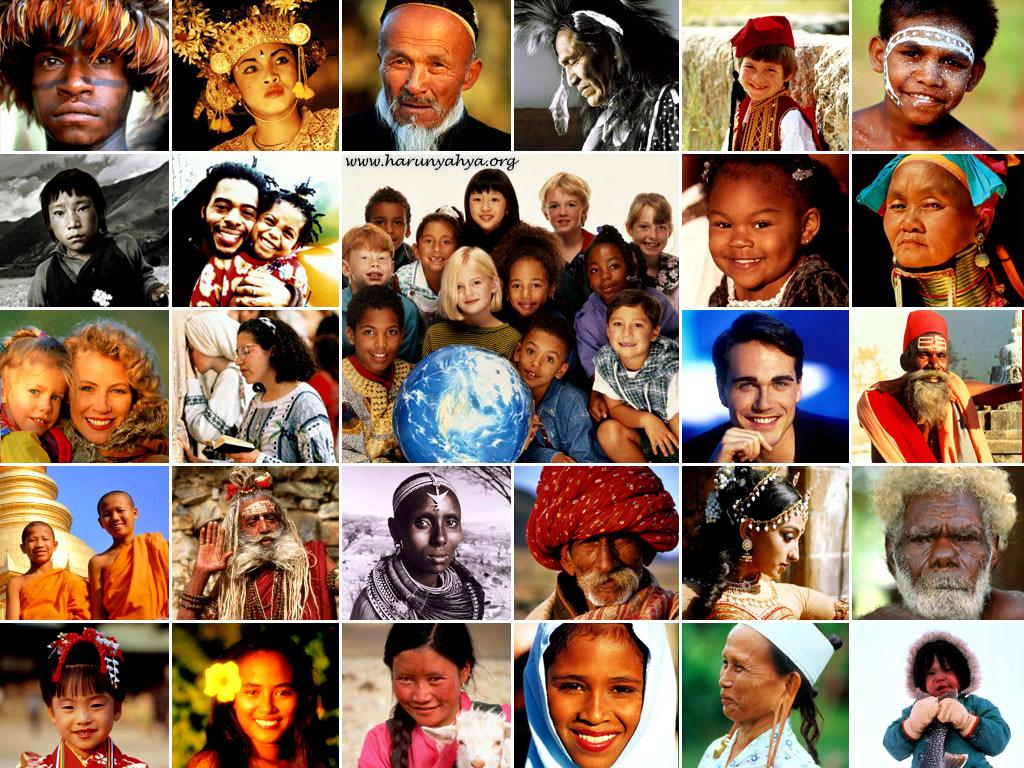


Adapted from: Implementing Diversity by Marilyn Loden. 1996. McGrawHill Publishing
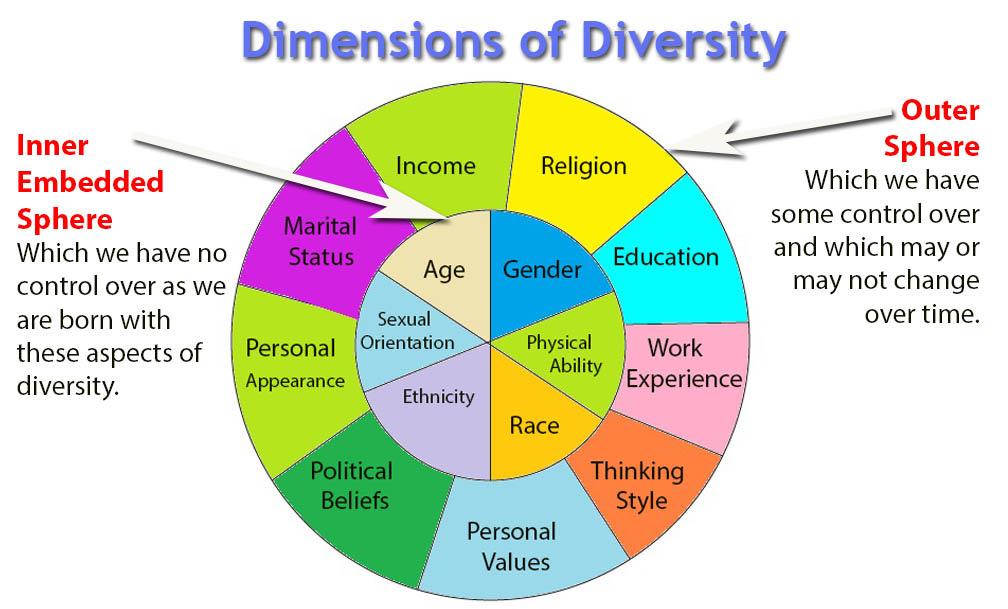
COMPORTAMIENTOS
CREENCIAS VALORES
SUPOSICICONES
HISTORIA COLLECTIVA
TRADICIONES
MODOS DE PENSAR
PERCEPCIONES




MITOS
BEHAVIORS
BELIEFS VALUES
ASSUMPTIONS
COLLECTIVE HISTORY
TRADITIONS
THOUGHT PATTERNS

PERCEPTIONS
MYTHS












• Actively creates down
• Denying
• Recognizing but no action through: endless talking about it; delegating the issue to others- “its being dealt with…”; collusion; the desire to act but a lack of knowledge keeps one paralyzed

• Educating and interrupting through: taking small steps to change; reflecting on action and preparing for more; this is a transitional stage where one begins to pay the price and one must decide whether to continue or not
• Educating self through: critical reflection; continued action that leads to personal conversion;

• Questioning and Dialoguing through: educating others; supporting others who are taking risks for social change; engaging individuals and groups in dialogue
• Supporting and encouraging through: engaging and/or supporting interventions and actions that address prejudice and racism
• Initiating and preventing through: actions that actively anticipate and identify discriminatory institutional practice and individual actions; building institutional consensus that reflects diverse/multicultural views/reality
Adams, M., Bell, L., & Griffin, P. (1997). Teaching for diversity and social justice: A sourcebook. New York: Routledge.


“Safe space where you belong…Brave space to be strong!”

